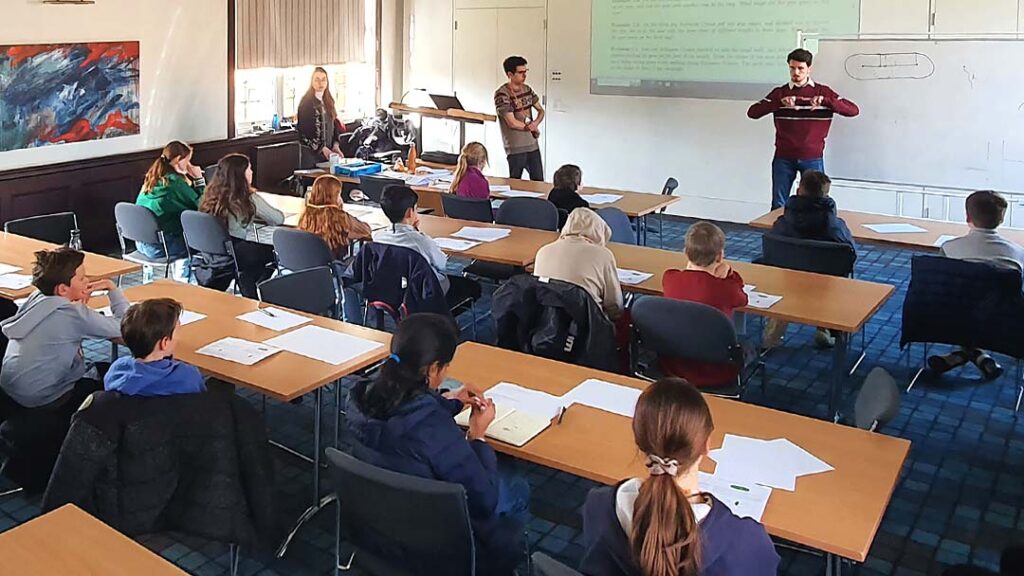13:00
Resurgence
Abstract
Perturbation theory is one of the main tools in the modern physicist's toolbox to solve problems. Indeed, it can often the only approach we have to computing any quantity of interest in a physical theory. However, perturbative contributions can actually grow as we increase the order. Thus, many perturbative series in physics are asymptotic, with 0 radius of convergence. In this talk, I will describe resurgence, which gives us a way of treat such series, by adding non-perturbative effects in a systematic manner.
Junior Strings is a seminar series where DPhil students present topics of common interest that do not necessarily overlap with their own research area. This is primarily aimed at PhD students and post-docs but everyone is welcome.
14:15
Seiberg-Witten equations in all dimensions
Abstract
I will describe a generalisation of the Seiberg-Witten equations to a Spin-c manifold of any dimension. The equations are for a U(1) connection A and spinor \phi and also an odd-degree differential form b (of inhomogeneous degree). Clifford action of the form is used to perturb the Dirac operator D_A. The first equation says that (D_A+b)(\phi)=0. The second equation involves the Weitzenböck remainder for D_A+b, setting it equal to q(\phi), where q(\phi) is the same quadratic term which appears in the usual Seiberg-Witten equations. This system is elliptic modulo gauge in dimensions congruent to 0,1 or 3 mod 4. In dimensions congruent to 2 mod 4 one needs to take two copies of the system, coupled via b. I will also describe a variant of these equations which make sense on manifolds with a Spin(7) structure. The most important difference with the familiar 3 and 4 dimensional stories is that compactness of the space of solutions is, for now at least, unclear. This is joint work with Partha Ghosh and, in the Spin(7) setting, Ragini Singhal.
The MPLS Enterprise and Innovation Fellowship Programme offers a unique one-year opportunity for postdoctoral researchers in science departments at the University of Oxford. This programme is designed for individuals passionate about expanding the role of entrepreneurship in research careers and supports researchers in exploring innovative opportunities.
Applications close 5 pm, 19th January 2025


